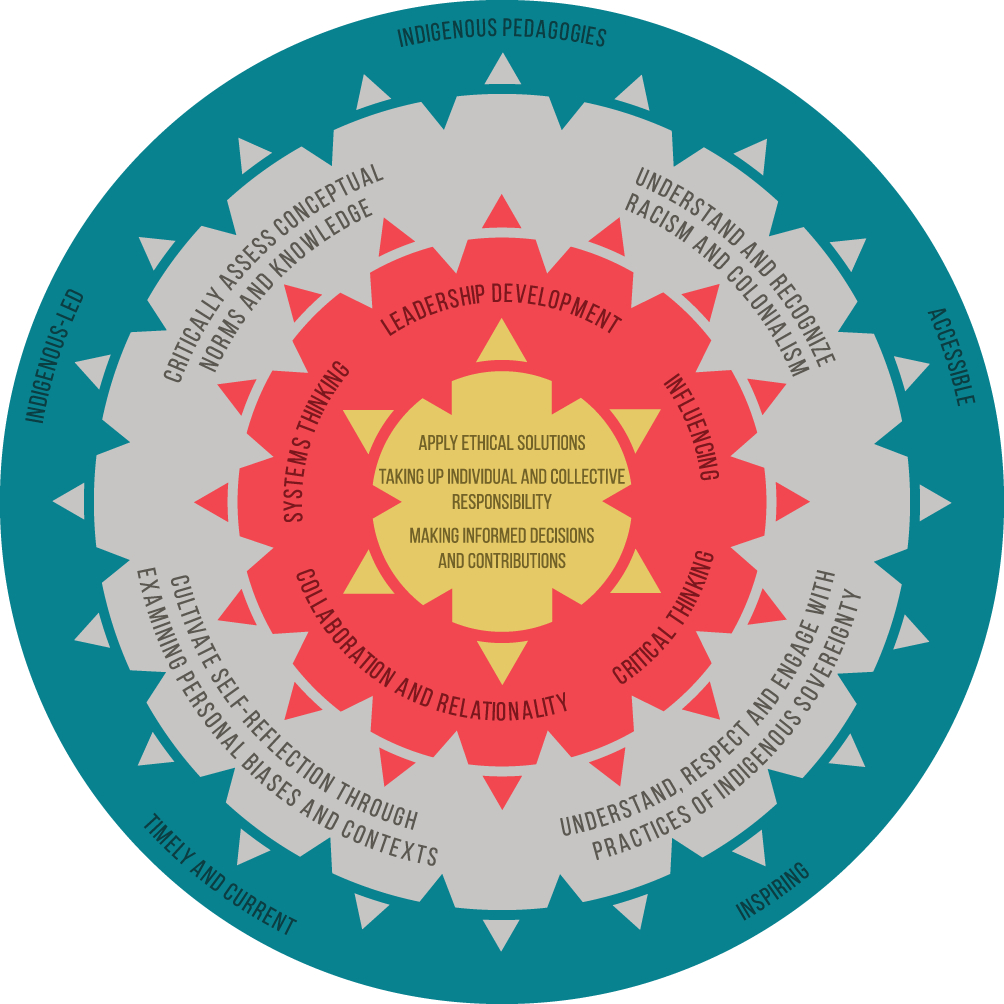Teaching Design and Competency Framework
Native Studies continuing education has been designed to build specialized and enduring skills and competencies for application in a wide array of professions and settings. Our courses are open to everyone irrespective of prior knowledge or experience!
Micro-courses and microcredentials were collectively and collaboratively created by Native Studies professors and staff, Indigenous community contributors, instructional designers, and educational and information technologists. Our teams worked to develop micro learning experiences that are flexible, timely, and engaging, following Universal Design for Learning (UDL) principles. To guide the development, we have put together a framework:

This is a graphic in a circular shape, with four rings. Each item is spread around the circle and could be read in any order. The text below explains the inner three rings in greater detail.
- Outer ring:
- Indigenous pedagogies
- Accessible
- Inspiring
- Timely and current
- Indigenous-led
- Second ring:
- Understand and recognize racism and colonialism
- Understand, respect and engage with practices of indigenous sovereignty
- Cultivate self-reflection through examining personal biases and contexts
- Critically assess conceptual norms and knowledge
- Third ring:
- Leadership development
- Influencing
- Critical thinking
- Collaboration and relationality
- Systems thinking
- Inner ring:
- Apply ethical solutions
- Taking up individual and collective responsibility
- Making informed decisions and contributions
This competency framework graphic shows the way that continuing education courses are designed, as Indigenous-led, with Indigenous pedagogies, and to be inspiring, accessible, timely and current. Success in each course will require demonstration of topical knowledge that reflects the learner’s ability to:
- Understand and recognize racism and colonialism
- Cultivate self-reflection through examining personal biases and contexts
- Critically assess conceptual norms and knowledges
- Understand, respect and engage with practices of Indigenous sovereignty
In order to achieve competence in these four overarching areas, students must demonstrate progress towards the foundational skills of:
- Critical Thinking
- Collaboration and relationality
- Systems Thinking
- Leadership Development
- Influencing positive change
Courses include exercises for engagement and practice as key parts of each stage of the learning. Students are assessed using a variety of tools to measure their progress toward competence in these key skills. This design allows course instructors to determine students’ ability to:
- Apply ethical solutions
- Take up individual and collective responsibility and
- Make informed decisions and contributions